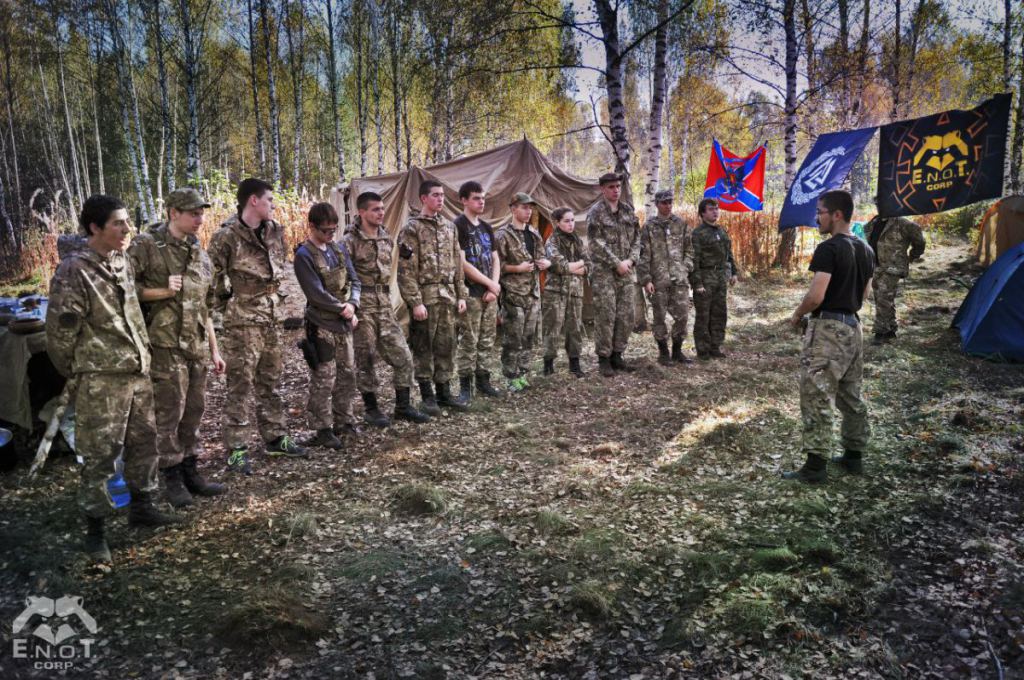Popular Ukrainian users of Facebook who are increasingly being blocked on the social network are convinced that this is the result of Russia's information war against Ukraine that uses so-called bots in Russia to generate thousands of user complaints. The blocked users in Ukraine are planning to sue Facebook for illegitimate blocking. Meanwhile, the Ukrainian government is trying to solve the problem through dialogue with the social network.
A few apparently innocent phrases that writer Andriy Bondar posted on his Facebook page were enough to have his account blocked -- for the first time after 6 years of using the social network:
"I wanted to ask a fisherman if the fish were biting and it just slipped out, 'What's going on at the Khokhols.'" ("Khokol" is a Russian pejorative term for Ukrainians. Bondar's question is one frequently posed in Russian social media lately, where everything appears to center on Ukraine -- Ed.). This kind of reaction surprised his readers since Bondar had posted much sharper comments the same day.
"They chose this one message and targeted it for complaints. This is an absolutely normal text that could not possibly outrage such a large number of people that it would justifying blocking," Bondar says.
Soon afterwards the writer was banned again. He thus joined a large group of popular Ukrainian contributors who have been blocked due to numerous complaints, especially for postings dealing with Russian activities in the Donbas. The Facebook users are convinced this is being done as part of Kremlin's information war against Ukraine and that the blocking occurs automatically when a given post receives 10,000 complaints. They believe an entire agency in Russia operates these so-called bots to generate the high numbers of complaints.
The issue of the massive blocking of Ukrainian posters on Facebook has even touched the Ukrainian government. President Petro Poroshenko had appealed to the company's founder Mark Zuckerberg to open an office in Ukraine but was turned down. Zuckerberg has also rejected accusations that Russian moderators are the ones banning Ukrainian posters because of the conflict between Russia and Ukraine.
According to Zuckerberg, there is no Russian Facebook office and Russian anti-Ukrainian moderators are not moderating Ukrainian posts. Zuckerberg also insisted that the social network had only blocked postings on Russia and Ukraine that violated Facebook rules and standards and were "clearly hateful, contained ethnic insults and incited to violence." However, that explanation clearly did not apply to one instance that caused great outrage in Ukraine -- where the photo of a little girl receiving the metal of her father, Andriy Matviyenko, killed in the Donbas, was blocked for "nakedness."
Media expert Maksym Savanevskyi believes the question to Zuckerberg was improperly formulated, since Facebook does not have offices in separate countries. He also points out the social network cannot admit publicly that it has problems with the blocking system because this would undermine the trust of their users.
"In a situation where they have such deep problems with the blocking system that they actually violate the rights of the people using the social network they risk undermining public confidence not only in Ukraine but in the world. And this could reduce the value of the company by billions of dollars," Savanevskyi says.
Despite the company's denials, official Kyiv is continuing a dialogue with Facebook representatives. For each blocked user, the Ministry of Information Policy writes letters to the social network's office. According to Deputy Minister Artem Bidenko, these negotiations have already had some success.
"On June 16-17 a Facebook representative is coming to Ukraine for an official meeting. We will invite the Facebook users who have been blocked and we can discuss this publicly. The second point is that we will ask the (company's) programmers to find some new algorithms that would exclude the impact of automatic trolling programs," Bidenko says, as reported by TV Channel 5.
Meanwhile, Ukrainian users are preparing lawsuits in Ukrainian courts and also at the European Court of Human Rights to draw attention to the problem rather than out of any desire for compensation.
"We will sue Facebook in Ukrainian courts for unilaterally violating consumer rights -- and the unreasonable blocking on Facebook violates these rights -- and of causing reputational damage," explains Andriy Bondar, as quoted by Espreso TV. "These actions of course will be symbolic. But this is a matter of principle and publicity. The legal proceedings will be open and public. And there is the general belief that this an issue of bots from Russia," he concludes.





